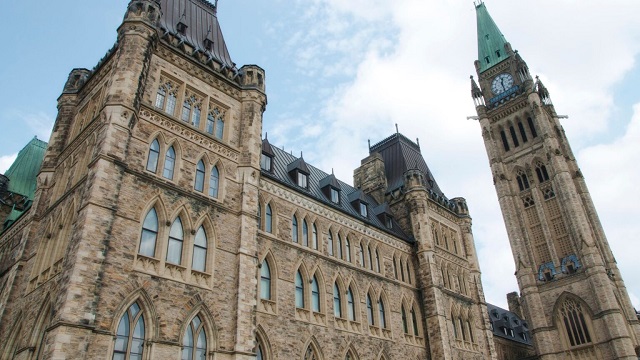Alberta
Deirdra Dionne one of 14 to be inducted to Alberta Sports Hall of Fame

Alberta Sports Hall of Fame Introduces 2020 Inductees
Red Deer claims Deidra Dionne as their own, and so they should. Her skiing career took off – literally – when she moved with her family to the city in 1982 and joined the Red Deer Freestyle Club at Canyon Ski Resort. It wasn’t long before she began excelling on a provincial, national, and eventually, international stage.
“We are proud to welcome these new Honoured Members into the Hall,” said Kinsella. “Their contributions to sport in our province are incredible and humbling. They have truly earned the right to have their names added to our Hall.” – Tracey Kinsella, Executive Director, Alberta Sports Hall of Fame. On May 29th, an induction banquet and ceremony will be held at the Cambridge Red Deer Hotel and Conference Centre where this group will officially be welcomed into the Alberta Sports Hall of Fame. Included are five athletes, four builders and five award winners.
The newest athletes joining the Alberta Sports Hall of Fame are:
Deidra Dionne (Athlete, Skiing); Bronze medalist in women’s aerials at the 2002 Salt Lake City Winter Olympics.
Chris Phillips (Athlete, Hockey): A stay-at-home defenceman and the longest-serving player in Ottawa Senators franchise history.
Kelly Sutherland (Athlete, Chuckwagon Racing): Twelve-time Calgary Stampede Rangeland Derby Championships, and seven Calgary Stampede Aggregate titles.
Michael Robertson (Athlete, Snowboardcross): Silver medalist at the 2010 Vancouver Winter Olympics. This year’s builders include:
Jan Ullmark (Builder, Figure Skating): Jan is an elite coach whose skills have made an indelible mark on the sport of figure skating in Canada.
Terry Morris (Builder, Curling): Terry has been active in the promotion and development of the sport of curling in Alberta and across the nation for the better part of four decades.
Ken Babey (Builder, Hockey): In his nearly three decades behind the bench of the Southern Alberta Institute of Technology (SAIT) Trojans men’s hockey team, Ken Babey guided the team to unparalleled success.
Derek Douglas (Builder, Soccer): The first soccer referee from Alberta to attain the position of FIFA International Referee in 1986, Derek has also been instrumental in growing the game in Sherwood Park, Edmonton and throughout the province.
This year’s Award winners are:
Nancy Southern & Ian Allison (Bell Memorial Award): As the team who pioneered equestrian sport broadcasting in Alberta, they are the first duo to be awarded the Bell Memorial Award.
John Currie (Achievement Award): As president of the 1983 Western Canada Summer Games, John led the development and funding of the game’s flagship facility – the Repsol Sport Centre.
Stan Wakelyn (Pioneer Award, Soccer): In 1922, Calgary Hillhurst FC won the Dominion of Canada Football Championship, with Stan, a centre forward, as team captain.
Dennis Kadatz (Legacy Award): At 22, Dennis guided the Edmonton Huskies Junior Football Team to three consecutive Canadian Championships in 1962, 1963 and 1964. In 1964, Dennis became head coach of the University of Calgary’s fledgling football program.
For more information, please contact Tracey Kinsella, Alberta Sports Hall of Fame Executive Director, at (403) 341-8614 or via email at [email protected].
Detailed bios of each athlete:
Deidra Dionne –Skiing Athlete

Deidra Dionne was a trailblazer for today’s athletes competing in the sport of freestyle skiing in Canada. Born in North Battleford, Saskatchewan, Deidra’s skiing career took off – literally – when she moved with her family to Red Deer in 1982 and joined the Red Deer Freestyle Club at Canyon Ski Resort. It wasn’t long before she began excelling on a provincial, national, and eventually, international stage. Her accomplishments are exceptional: silver at the 2008 Canadian Freestyle Championships, 2000 World Cup Freestyle Rookie of the Year, bronze medals at both the 2001 and 2003 World Championships, and a bronze medal in women’s aerials at the 2002 Salt Lake City Winter Olympics. Despite breaking her neck in a training accident in September 2005, Deidra battled back to compete at the 2006 Turin Olympics.
Chris Phillips – Hockey Athlete

Calgary’s Chris Phillips began his junior hockey career at the age of 15 with the Fort McMurray Oil Barons of the Alberta Junior Hockey League (AJHL), before joining the Western Hockey League’s (WHL) Prince Albert Raiders in time for the 1995-96 season. In 61 games with the Raiders, Chris scored 10 goals and added 30 assists on his way to winning Jim Piggott Memorial Trophy as the league’s top rookie. Midway through the 1996-97 season, the Raiders traded Chris to the Lethbridge Hurricanes, where he helped lead the Hurricanes to the Memorial Cup Final, which they lost to the Hull Olympique. Chris won two gold medals as a member of Canada’s World Junior Hockey Team in both 1996 and 1997. Chris was drafted first overall by the Ottawa Senators at the 1996 NHL Entry Draft, and would spend his entire NHL career with the team. Chris began his career during the 1997–98 season and retired following the 2015–16 season, after spending the entire season on the injured list. A stay- at-home defenceman, Chris played 1,179 games with Ottawa in the regular season and playoffs, making him the longest-serving player in Senators franchise history. During his NHL career, Chris scored 71 goals to go along with 217 assists.
Kelly Sutherland – Chuckwagon Racing Athlete

You have to look no further that Kelly Sutherland’s nickname to understand the impact he had on his chosen sport of chuckwagon racing: “The King.” He was racing at the age of 14, driving by the age of 16, and winning at the age of 22. With a career that spanned five decades, Kelly remains one of the most important influences in the sport’s history. He won an astounding 12 world championships – his first in 1974 and his final one in 2011 at the age of 60. Kelly is perhaps best known for his success at the Calgary Stampede. Over the course of his career, he won 12 Calgary Stampede Rangeland Derby Championships, and seven Calgary Stampede Aggregate titles. He also won nine Ponoka Stampede titles and one in his hometown of Grande Prairie. In 2010, Kelly was the first torchbearer of day eight of the 2010 Vancouver Olympic Winter Games torch relay and in 2011 he shared the sport with Prince William and Catherine, Duke and Duchess of Cambridge, during their visit to the Calgary Stampede. Kelly retired from racing in 2017. In his 48 seasons behind the reins, he placed in the top 10 overall 41 times.
Michael Robertson – Snowboardcross Athlete

Michael Robertson was always a gifted athlete – he played hockey and soccer from the
age of five before transitioning to competitive snowboarding at the age of 13. A member of a small team from Rabbit Hill Snow Resort, just south of Edmonton, Mike became provincial champion in his age group at the age of 14. Two years later, he transitioned to the sport of snowboardcross, where his competitive nature and dedication to his chosen craft, allowed him to quickly excel at the sport. Michael joined the National Development Team at 17 before progressing to the National Team, where he would remain until his career was cut short by injuries at the age of 27. During his career on the World Cup tour, Michael was often in the top 10, earning two silver and one bronze medal along the way. Heading into the 2010 Vancouver Winter Olympics, Michael was ranked fifth on the tour. In his semi-final, Michael avoided an early collision involving the other three competitors to run away with the race. In the final, Michael got out to the early lead and held it until Seth Wescott caught him at the second last turn to deny him the gold. Since his retirement, Michael has coached a number of Alberta snowboardcross teams, the National Para Olympic team, and acts as an ambassador to Kidsport.
Jan Ullmark – Figure Skating Builder

Since arriving in Alberta in 1973, Jan Ullmark and his elite coaching skills have made an indelible mark on the sport of figure skating in Canada. As the Director of Skating at Edmonton’s Royal Glenora Club, Jan elevated the club to prominence as one of the country’s top training centres. Under his tutiledge, the club began to consistently produce national and international competitors. Among the athletes who benefited from his guidance were Michael Slipchuk, who won the 1992 Canadian Championship; Jane Gray; as well as the team of Jaime Sale and David Pelletier, who went on to win gold in pairs figure skating at the 2002 Salt Lake City Winter Games. With his induction into the Alberta Sports Hall of Fame, Jan joins his former proteges Slipchuk, Sale and Pelletier as an honoured member. For the past 20 years, Jan and his wife, Cynthia, have hosted a skating camp in Canmore which welcomes skaters from across the province to train under their guidance.
Terry Morris – Curling Builder

Terry has been active in the promotion and development of the sport of curling in Alberta and across the nation for the better part of four decades. During that time, most of Terry’s exploits have flown under the radar, including his efforts to unite the sport’s governance structure which led to the establishment of the Alberta Curling Federation, as well as the Northern Alberta Curling Association. His incredible administrative and organizational skills allowed Terry to play an integral role on the organizing committees of every major curling event held in Edmonton since 1987, including the 1987 Brier, the 1999 Brier, and the 2005 Brier – the largest and most successful Brier in its history. He has also played an important role in the success of the 2007 Ford World Men’s Curling Championship, and the 2009 Tim Hortons Roar of the Rings Canadian Curling Trials. Today, Terry continues to work with as an event manager with Curling Canada.
Ken Babey – Hockey Builder

In his nearly three decades behind the bench of the Southern Alberta Institute of Technology (SAIT) Trojans men’s hockey team, Ken Babey guided the team to unparalleled success on and off the ice while becoming the most successful coach in Canadian post-secondary hockey history. From 1987-2014, Ken picked up a total of 534 regulation and playoff wins, nine Alberta Colleges Athletic Conference (ACAC) championships, seven ACAC Coach of the Year awards, one Canadian College Athletic Association (CCAA) title (2000), and two CCAA silver medals (1992 and 1997). He also set over 15 ACAC career coaching records.
In June 2014, Ken announced he was stepping down as the Trojans coach, walking away with a career winning percentage of .681. Following a brief retirement, Ken was recruited to step behind the bench of the national men’s para ice hockey (previously known as sledge hockey) team. It didn’t take long for him to make his mark – the team took back-to-back silver medals at the world championships in 2015 and 2016 before winning gold at the 2017 championships in South Korea. At the 2018 Paralympic Winter Games in PyeongChang,
Ken led Team Canada to the gold medal game, where they lost 2-1 to the United States in overtime. Ken was previously inducted into the Alberta Hockey Hall of Fame in 2015.
Derek Douglas – Soccer Builder

Derek Douglas was born in Edinburgh, Scotland in 1942 with a love of football – a love he brought with him when he immigrated to Canada with his family in 1957. In his family’s adopted hometown of Vancouver, BC, Derek would hone his goaltending skills playing on teams alongside his brothers. In 1973, Derek was relocated to Edmonton for work, settling in Sherwood Park with his young family. As soccer was so new in the growing community, Derek and his wife found roles as coaches with their children’s teams. Derek also began officiating soccer that same year, and would serve two terms as president of the Sherwood Park District Soccer Association between 1975 – 1979. In 1981, Derek’s hard work and dedication to the sport were recognized when he was promoted to the position of National Soccer Referee. By 1982, Derek was officiating professional soccer games in the North American Soccer League, while also maintaining his commitments to soccer in his home community. In 1986, Canada Soccer promoted Derek to the top position a soccer official can become: a FIFA International Referee, the first one from Alberta. In an officiating career that lasted from 1981-2000 at the national and international level, Derek officiated games across North and Central America. Following the 1996 Atlanta Summer Olympics, Derek shifted his focus to the development of female soccer officials locally, nationally, and internationally. At the age of 75, he continues to grow the sport locally as a part-time referee coordinator in Sherwood Park.
Nancy Southern & Ian Allison – Bell Memorial Award
As the team who pioneered equestrian sport broadcasting in Alberta, Nancy Southern
and Ian Allison are the first duo to be awarded the Bell Memorial Award. Since opening in southwest Calgary in 1975, Spruce Meadows has raised the profile of show jumping on a provincial, national and global level. Nancy and Ian helped develop the first digital TV studio in 1990, which was quite progressive at the time. Before opening the studio, Nancy and Ian spent as much time as they could learning from the experts. During the 1988 Calgary Winter Olympics, the duo had the opportunity to shadow a number of ABC Television producers. The next year, Nancy attended the Electronic Festival in Cannes as a guest of ABC. She used her time to learn about the necessities to build a top-flight studio. In the studio’s early years it attracted the attention of CTV’s Wide World of Sports, which televised Spruce Meadows’ Grand Prix. This led to the “Spruce Meadows Today” series, which aired on the network for 25 years. Ian, “the Voice of Spruce Meadows,” lends his talents to the CBC broadcast team covering the Spruce Meadows events, and was the colour commentator for the show jumping events at the 2016 Summer Games in Rio de Janeiro, Brazil. He was also the co-announcer at the 2017 World Equestrian Games in Normandy, France. Today, Spruce Meadows Television Production Unit produces over 130 hours of programming for distribution in over 110 countries worldwide.
John Currie – Achievement Award
John Currie’s vision and dedication to Alberta amateur sport is unquestioned. John was a pivitol figure as president of the 1983 Western Canada Summer Games in Calgary, helping in the development and funding of the game’s flagship facility – the Repsol Sport Centre (previously known as Lindsay Park Sports Centre and then Talisman Centre). At the time it was constructed, the RSC was the largest multi-sport complex of its kind in Canada. During the games, over 2,500 athletes from the four western provinces and the Northwest Territories competed in 23 summer Olympic sports. Since then, the centre has been the training ground for countless amateur athletes, as well as numerous Olympic and Paralympic athletes. John commitment to amateur sport in Calgary and throughout Alberta allowed him to lend his expertise to countless boards and foundations, including the Alberta Sports Hall of Fame and Museum. The John Currie Amateur Sports Legacy Fund, a lasting legacy of the games, has awarded bursaries to over 100 amateur athletes since 2013.
Stan Wakelyn – Pioneer Award
If you are a successful soccer player in Alberta, you can trace some of that success back to Stan Wakelyn. Born in Sunderland, England, Stan moved to Calgary at the age of 15 and remained there until his death in 1976. Throughout the 1910’s and 1920’s, Stan, three of his brothers, and his father were members of the storied Calgary Hillhurst FC Soccer Club. Stan’s time with the club was interrupted during World War I, where he served alongside five of his brothers. In 1922, Calgary Hillhurst FC won the Dominion of Canada Football Championship, with Stan, a centre forward, as team captain. It was the only time in the championship’s first 60 years that it was won by a team hailing from Alberta. From 1922-24, Stan guided Hillhurst to three straight Bennett Shield provincial titles. He also played on a Calgary all-star team that faced off against a number of international teams from England and Scotland that were touring Canada. Stan worked for Canada Post for 38 years and was also a member
of the Royal Canadian Legion No. 1 Branch. In 1950, Stan was a finalist for the Canadian Press Best in 50 Years Footballers; in 2012, as part of the Canadian Soccer Association’s Centennial, Stan was honoured as one of the country’s top 100 Men’s Footballers; and in 2018 he was elected to the Canada Soccer Hall of Fame.
Dennis Kadatz – Legacy Award
Raised on his family’s farm southeast of Edmonton, Dennis played football at the University of Alberta while pursuing his Bachelor’s of Physical Education. At 22, Dennis became the head coach on the Edmonton Huskies Junior Football Teams, guiding them to three consecutive Canadian Championships in 1962, 1963 and 1964. At the 1965 Canadian championship, the Huskies narrowly missed a fourth national title, losing 2-1. In 1964, Dennis’ legacy on the gridiron would be cemented when he was hired as head coach by the University of Calgary to help launch their fledgling football program, a role he would hold until 1968. Dennis was appointed as U of C’s first Athletic Director in 1966 and would remain in that position until 1985. He would also add the title of Associate Dean in the Faculty of Eduction in 1980, where he oversaw the design of both Jack Simpson Gym and the Olympic Oval. In 1985, Dennis was recruited to oversee another group in its infancy – the Calgary Olympic Development Association. First as general manager (1985-1992) and then as president (1992-1999), Dennis grew CODA into the most-successful post-Olympic organization in the world. Dennis was previously inducted into the Alberta Sports Hall of Fame in 2005 as a member of the 1962-1964 Edmonton Huskies and in 2010 with the 1983-85 University of Calgary Dinos.
Click for stories and videos of some of the recent inductees into the Alberta Sports Hall of Fame.
For more information about the Alberta Sports Hall of Fame, click here.
Alberta
Alberta government should create flat 8% personal and business income tax rate in Alberta

From the Fraser Institute
By Tegan Hill
If the Smith government reversed the 2015 personal income tax rate increases and instituted a flat 8 per cent tax rate, it would help restore Alberta’s position as one of the lowest tax jurisdictions in North America
Over the past decade, Alberta has gone from one of the most competitive tax jurisdictions in North America to one of the least competitive. And while the Smith government has promised to create a new 8 per cent tax bracket on personal income below $60,000, it simply isn’t enough to restore Alberta’s tax competitiveness. Instead, the government should institute a flat 8 per cent personal and business income tax rate.
Back in 2014, Alberta had a single 10 per cent personal and business income tax rate. As a result, it had the lowest top combined (federal and provincial/state) personal income tax rate and business income tax rate in North America. This was a powerful advantage that made Alberta an attractive place to start a business, work and invest.
In 2015, however, the provincial NDP government replaced the single personal income tax rate of 10 percent with a five-bracket system including a top rate of 15 per cent, so today Alberta has the 10th-highest personal income tax rate in North America. The government also increased Alberta’s 10 per cent business income tax rate to 12 per cent (although in 2019 the Kenney government began reducing the rate to today’s 8 per cent).
If the Smith government reversed the 2015 personal income tax rate increases and instituted a flat 8 per cent tax rate, it would help restore Alberta’s position as one of the lowest tax jurisdictions in North America, all while saving Alberta taxpayers $1,573 (on average) annually.
And a truly integrated flat tax system would not only apply a uniform tax 8 per cent rate to all sources of income (including personal and business), it would eliminate tax credits, deductions and exemptions, which reduce the cost of investments in certain areas, increasing the relative cost of investment in others. As a result, resources may go to areas where they are not most productive, leading to a less efficient allocation of resources than if these tax incentives did not exist.
Put differently, tax incentives can artificially change the relative attractiveness of goods and services leading to sub-optimal allocation. A flat tax system would not only improve tax efficiency by reducing these tax-based economic distortions, it would also reduce administration costs (expenses incurred by governments due to tax collection and enforcement regulations) and compliance costs (expenses incurred by individuals and businesses to comply with tax regulations).
Finally, a flat tax system would also help avoid negative incentives that come with a progressive marginal tax system. Currently, Albertans are taxed at higher rates as their income increases, which can discourage additional work, savings and investment. A flat tax system would maintain “progressivity” as the proportion of taxes paid would still increase with income, but minimize the disincentive to work more and earn more (increasing savings and investment) because Albertans would face the same tax rate regardless of how their income increases. In sum, flat tax systems encourage stronger economic growth, higher tax revenues and a more robust economy.
To stimulate strong economic growth and leave more money in the pockets of Albertans, the Smith government should go beyond its current commitment to create a new tax bracket on income under $60,000 and institute a flat 8 per cent personal and business income tax rate.
Author:
Alberta
Province to stop municipalities overcharging on utility bills

Making utility bills more affordableAlberta’s government is taking action to protect Alberta’s ratepayers by introducing legislation to lower and stabilize local access fees. Affordability is a top priority for Alberta’s government, with the cost of utilities being a large focus. By introducing legislation to help reduce the cost of utility bills, the government is continuing to follow through on its commitment to make life more affordable for Albertans. This is in addition to the new short-term measures to prevent spikes in electricity prices and will help ensure long-term affordability for Albertans’ basic household expenses.
Local access fees are functioning as a regressive municipal tax that consumers pay on their utility bills. It is unacceptable for municipalities to be raking in hundreds of millions in surplus revenue off the backs of Alberta’s ratepayers and cause their utility bills to be unpredictable costs by tying their fees to a variable rate. Calgarians paid $240 in local access fees on average in 2023, compared to the $75 on average in Edmonton, thanks to Calgary’s formula relying on a variable rate. This led to $186 million more in fees being collected by the City of Calgary than expected.
To protect Alberta’s ratepayers, the Government of Alberta is introducing the Utilities Affordability Statutes Amendment Act, 2024. If passed, this legislation would promote long-term affordability and predictability for utility bills by prohibiting the use of variable rates when calculating municipalities’ local access fees. Variable rates are highly volatile, which results in wildly fluctuating electricity bills. When municipalities use this rate to calculate their local access fees, it results in higher bills for Albertans and less certainty in families’ budgets. These proposed changes would standardize how municipal fees are calculated across the province, and align with most municipalities’ current formulas.
If passed, the Utilities Affordability Statutes Amendment Act, 2024 would prevent municipalities from attempting to take advantage of Alberta’s ratepayers in the future. It would amend sections of the Electric Utilities Act and Gas Utilities Act to ensure that the Alberta Utilities Commission has stronger regulatory oversight on how these municipal fees are calculated and applied, ensuring Alberta ratepayer’s best interests are protected.
If passed, this legislation would also amend sections of the Alberta Utilities Commission Act, the Electric Utilities Act, Government Organizations Act and the Regulated Rate Option Stability Act to replace the terms “Regulated Rate Option”, “RRO”, and “Regulated Rate Provider” with “Rate of Last Resort” and “Rate of Last Resort Provider” as applicable. Quick facts
Related information |
-

 Alberta22 hours ago
Alberta22 hours agoProvince to stop municipalities overcharging on utility bills
-

 Frontier Centre for Public Policy2 days ago
Frontier Centre for Public Policy2 days agoThe tale of two teachers
-

 Business1 day ago
Business1 day agoMaxime Bernier warns Canadians of Trudeau’s plan to implement WEF global tax regime
-

 Alberta1 day ago
Alberta1 day agoAlberta moves to protect Edmonton park from Trudeau government’s ‘diversity’ plan
-

 Bruce Dowbiggin1 day ago
Bruce Dowbiggin1 day agoCoyotes Ugly: The Sad Obsession Of Gary Bettman
-

 Freedom Convoy1 day ago
Freedom Convoy1 day agoOttawa spent “excessive” $2.2 million fighting Emergencies Act challenge
-

 COVID-191 day ago
COVID-191 day agoWHO Official Admits the Truth About Passports
-

 International22 hours ago
International22 hours agoUN attacks stay-at-home motherhood as ‘gender inequality’









